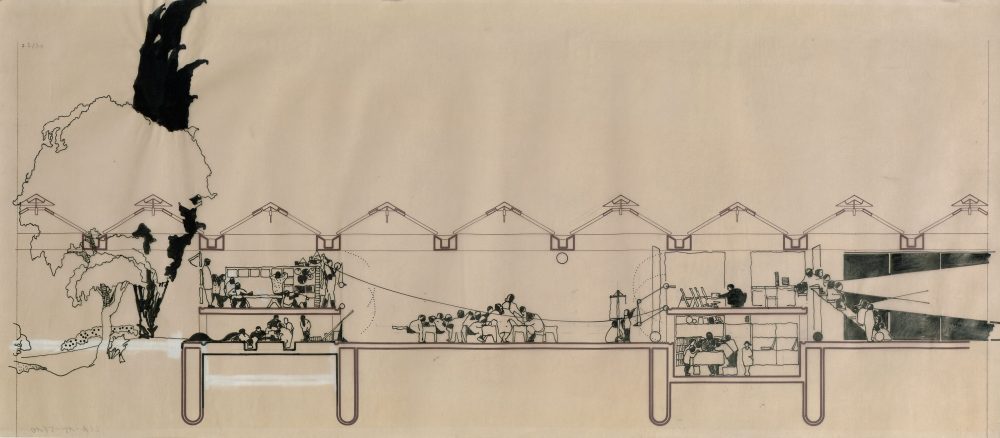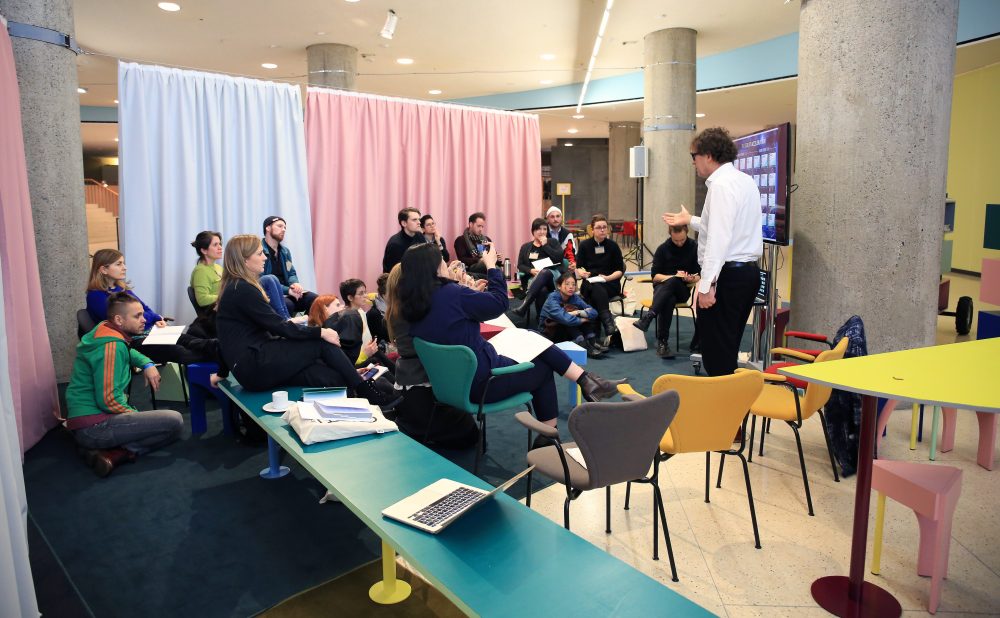The present is characterized by a crisis of the established epistemic-political order. Outdated categories and terms no longer function. Representational logics fail to grasp the complexity of contemporary phenomena and increasingly global societies, whose change is accelerated by digital infrastructures. In this situation, it is necessary to unlearn established modes of referring to the world and to rethink methods of constructing, situating, and criticizing reality. What should be unlearned and what could institutions of un-learning look like? And what role does critical discourse play in rethinking existing disciplines and practices? Can we create a form of alternative, self-organized academy that is based on situated practices and that is open to everybody?
More information on the event and videos of the talks on hkw.de:
#Unlearning
With ASSET Production Studio, diffrakt – centre for theoretical periphery, Each One Teach One (EOTO) e.V., knowbotiq, Raumlabor Berlin, Tactical Technology Collective, Telekommunisten, Gigi Argyropoulou, Gilly Karjevsky, Nicoline van Harskamp, participants of the (Un-)Learning Place and many guests.
In today’s dystopian times of capitalist, extractivist, dichotomous and separationist logics, questions about alternative imaginaries for livable futures and co-existence with the natural world are more urgent than ever. Acknowledging “instituting” as a social ecology, as a collective agreement and cooperation, Berit Fischer’s workshop as part of the New Alphabet School #Instituting edition engendered a feminist ontology of “instituting” that exceeded the anthropocentric view towards an inter-connectivity with the natural living world.
read moreHow to unlearn disciplinary habits of thought, feeling and action that privilege the bounded individual? How can the act of listening be employed as a mode of relating across difference? Philosopher Melanie Sehgal combines an inquiry into the problem of relating within modern epistemologies with a reflection on the practice of her working group FORMATIONS and its endeavor to create techniques of transdisciplinary encounter.
read moreThe New Alphabet School is a school for artistic, curatorial, archival, poetic, activist, critical, and affirmative research practices that take place outside of academia or other institutional contexts. The first event within the frame of the three-year-project was a five-day (Un-)Learning Place with workshops and interventions by Berlin-based artistic, curatorial, and activist collectives in January 2019. This text was written as an introduction to that program.
read moreIn her essay The Work Before the Work Anthropologist and curator Yayra Sumah reflects on her experience of HKW’s Unlearning Place that took place in January 2019. She comes to the conclusion that collaborative work is not something which can simply be demanded, implemented or decided upon, but for which the grounds have to be laid by acknowledging different histories, different vulnerabilities and different imaginaries of the future, especially in asymmetrical relationships within institutional structures.
read moreIn his essay, first published in the program booklet “The New Alphabet – Opening Days” in January 2019, the media and cultural theorist Felix Stalder investigates the historic alignments of what he calls the “crisis of the epistemic-political order”. What happens, if our era of complexity does not allow for a desinterested, intersubjective position? How do we organize the ever increasing complexities of our times? Stalder’s essay argues for a multiplicity of views and heuristics, which seeks to recombine science, politics and affects.
->
read moreLehr- und Lernformate ziehen zunehmend in die Institutionen der zeitgenössischen Kunst ein. Im dreijährigen Projekt Das Neue Alphabet erprobt auch das Haus der Kulturen der Welt Schulformate. Die Autorin Tyna Fritschy folgt in ihrem Essay den Interventionen und Reflexionen des (Un-)Learning Place, der vom 9. bis 13. Januar 2019 am HKW Berlin stattfand, um die (Un-)Möglichkeiten des porösen Nicht-Klassenzimmers und neuer Alphabete schlaglichtartig abzutasten.
->
read more



